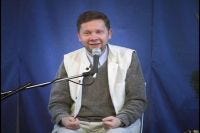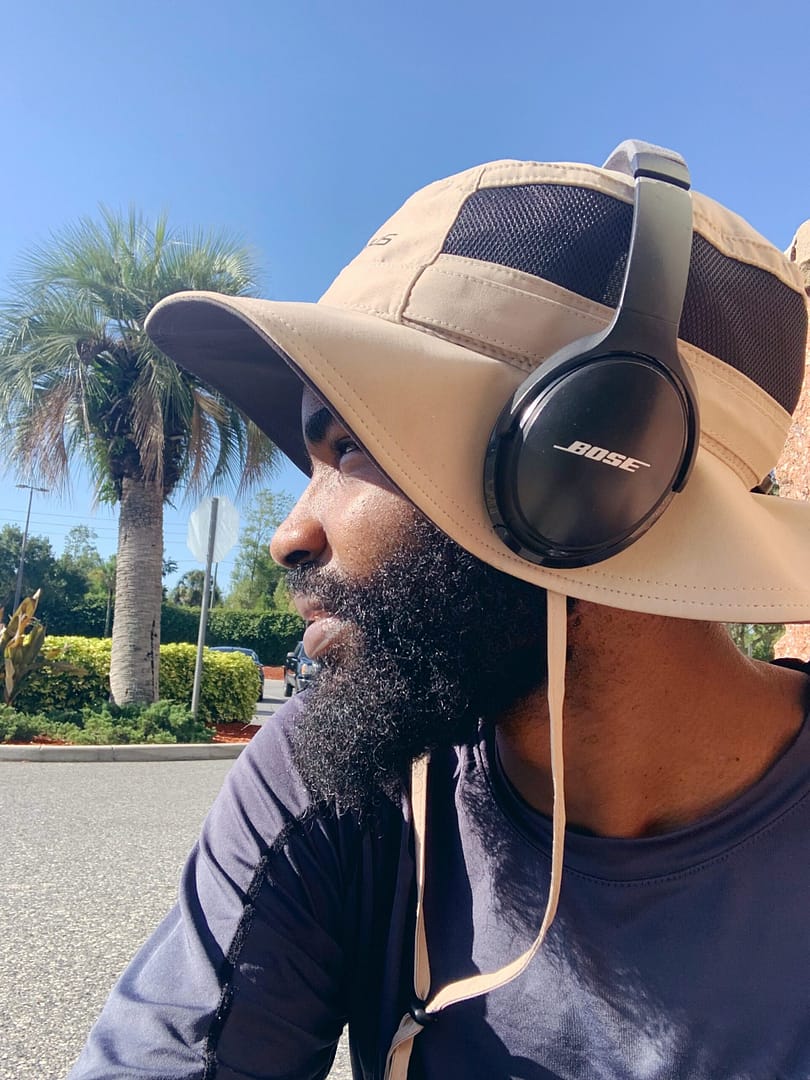A Guide to Spiritual Enlightenment
“Realize deeply that the present moment is all you have. Make the NOW the primary focus of your life.”
— Eckhart Tolle (The Power of Now: A Guide to Spiritual Enlightenment)
About the author: Eckhart Tolle is a spiritual teacher and author. Born in Germany. Educated at the Universities of London and Cambridge.
Tolle is the #1 New York Times bestseller of The Power of Now and the highly acclaimed follow-up book, A New Earth.
His books are widely ranked among our time’s top influential spiritual books, they’ve introduced a different kind of shift in the reader’s focus– away from the ego-based mind.
The Power of Now is a guide to the eternal “now” of Enlightenment.
Book The Power of Now PDF by Eckhart Tolle. The Three Main Ideas
-
- You are not your mind. Tolle reminds us that our inner thoughts and our stories shouldn’t define who we are, or our sense of self.
- Mindfulness. Mindfulness helps us stay present by letting the moment be what it is, instead of trying to change it or escaping it through our thoughts or actions.
- The pain-body. The “pain-body,” as Tolle calls it, is when past emotional pain takes over, making us react with anger or negative feelings. It shows up as things like self-hatred, anxiety, depression, fear, and drama. This emotional weight, explains Tolle, can also make it harder to stay present and aware in the moment.
The Power of Now by Eckhart Tolle is a guide that offers a glimpse into timelessness, but it’s a journey that takes some practical effort to fully embrace.
Here are some additional key takeaways from the book The Power of Now by Eckhart Tolle
Chapter 1
YOU ARE NOT YOUR MIND: The greatest obstacle to Enlightenment
Tolle explains that enlightenment is a state of wholeness. To put it more clearly, it’s a state that is essentially you, and yet, it is much higher than you.
He points out that, “Being can be felt, however it can never be understood mentally.
You can know it only when the mind is still, and your attention is fully and intensely in the Now.”
When you’ve tapped into the Now, says Tolle, “you realize the things that truly matter, like beauty, love, creativity, joy, and inner peace — all arise from beyond the mind.
The moment you start watching the thinker, a higher level of consciousness becomes activated.”— Eckhart Tolle.
Chapter 2
FREEING YOURSELF FROM YOUR MIND
Listen to the voice in your head. Says Tolle. “Be there as the witnessing presence.”
That voice you’ll often hear… aka the monkey mind, belongs to your conditioned mind. It’s the result of all history—the collective cultural mindset we inherited growing up.
Do not judge or condemn what you hear. Explains Tolle, because doing so would mean the same voice has returned through the back door.
Tolle says, ‘You’ll soon realize: there is the voice, and here I am listening to it, watching it.”
In your everyday life, you can practice this by taking any routine activity that’s usually a means to an end and giving it your fullest attention, without judging your emotions.
Chapter 3
ENLIGHTENMENT: RISING ABOVE THOUGHT
Eckhart Tolle describes the mind as an instrument. A tool that’s there to be used for specific tasks. When the job is completed, you lay it down.
He points out that approximately 80 to 90 percent of people’s thinking is repetitive and useless. Not to mention, these thoughts are often negative as well as harmful.
“If you observe the mind,” explains Tolle, “you’ll find this to be true.”
The present moment holds the key to liberation. But you cannot find the present moment as long as you are in your mind. — Eckhart Tolle
Eckhart reminds us that enlightenment means rising above thoughts, not falling back to a level below thoughts. (e.g., the level of an animal or a plant.)
Chapter 4
EMOTION: THE BODY’S REACTION TO YOUR MIND
Tolle believes that emotions are the body’s reaction to the mind. Or you might even say, it’s a reflection of the mind in the body. That is also to say, emotion arises where mind and body meet.
Strong emotions, for instance, can even cause changes in the biochemistry of the body.
If you’re having difficulties tapping into these emotions, Tolle advises that you start by feeling the body from within. Focus your attention on the inner energy field of your body.
Chapter 5
EMOTION: LOVE, JOY, and PEACE
Love, joy, and peace are the three main aspects of deep states of being. Writes Tolle.
In other words, they are the foundation of the inner connectedness with Being, since they all arise from beyond the mind.
Eckhart Tolle points out that emotions come from the dualistic mind. (Another word for thinking in good/bad, up/down, black/white, negative/positive, or the law of opposites.)
Whatever the present moment contains, explains Tolle, “accept it as if you had chosen it.”
Always work with it rather than against it.
Make It your friend and ally, not your enemy.”
Chapter 6
PAST PAIN: DISSOLVING THE PAIN-BODY
Tolle clarifies that, “As long as you cannot access the power of the Now, every emotional pain you experience leaves behind a residue of pain that lives on in you.”
This includes the pain you suffered as a child; and the unconsciousness of the world you and I were born into.
So, watch out for any sign of unhappiness in yourself, in whatever form it may be, because if you don’t consciously face and deal with the pain body, you’ll be forced to relieve it repeatedly.
The Two Levels to Your Pain
There are two levels to your pain:
- The pain you’re creating now.
- The pain from the past that still lives in your mind and body.
Therefore, be present enough to watch the pain body directly and feel its energy field within you. By doing so, it can no longer control your thinking or behavior.
Everything is shown up by being exposed to the light, and whatever is exposed to the light itself becomes light. — Eckhart Tolle.
Chapter 7
EGO IDENTIFICATION WITH THE PAIN-BODY
Tolle explains that once you have understood the basic principle of being present— as the watcher of what happens inside you — and you “understand” it by experiencing it — then you have the most potent transformational tool at your disposal. “However,” says Tolle, “this is not to deny that you may encounter intense inner resistance from moment to moment.”
He points out that this happens because you had made an unhappy self out of your “pain body” and believed that this mind-made fiction is who you are.
Tolle also reminds us that getting rid of old false identity won’t be easy.
You’ll be tempted to be in pain. In the pain-body, than to take a leap into the unknown, and risk losing the familiar unhappy self.
Tolle points out that “This is the purest form of addiction.“
So, If this applies to you, observe the resistance within yourself.
It might take a while for you to release the identity you’ve attached to the pain body, but it’s worth it.
As Tolle puts it:
It’s the unconscious fear of losing your identity that’ll likely create strong resistance to any dis-identification. —Eckhart Tolle.
Chapter 8
THE ORIGIN OF FEAR
Tolle states that fears come in many forms: unease, worry, anxiety, nervousness, tension, dread, phobia… you name it.
Tolle also realized that these kinds of psychological fears are always something that might happen, as opposed to not something that is happening — now.
He says, “You are in the here and now, while your mind is in the future.” As a result, this creates an anxiety gap.
Watch out for any defensiveness that you may feel within yourself. Says Tolle.
Ask yourself “What am I defending?
Is it a false identity?
An image in your mind?
A fictitious entity?
What is it?
And once you get to the bottom of it, make this pattern conscious, until you’re able to dis-identify with it.
In the light of your consciousness, the unconscious habit will then quickly dissolve. — Eckhart Tolle.
Chapter 9
THE EGO’S SEARCH FOR WHOLENESS
As long as the egoic mind runs your life, says Tolle, “you cannot truly be at ease, at peace, or truly fulfilled.”
The reason why is that the ego is a derived sense of self, and it must identify with external things.
Tolle clarifies that these “external things” are not — you.
Just to be clear here, Tolle is certainly not asking you to believe that your identity cannot be found in any of those things.
He’s simply saying that if you live long enough, you’ll know the truth of it for yourself.
“You will know it at the latest,” Tolle elaborates, “when you feel death approaching.”
Death stripped away all that is not you. Writes Tolle. And the secret of life is to “die before you die” — and find that there is no death.—Eckhart Tolle.
Chapter 10
MOVING DEEPLY INTO THE NOW [Don’t seek yourself in your mind]
According to Tolle, the ego’s needs are endless.
The ego often feels vulnerable and threatened; therefore, it lives in fear and wants.
And so identifying with the mind will likely create a false self.
As Jesus once said, “You become a branch cut off from the vine.”
The problems of the mind cannot be solved on the level of the mind.– Eckhart Tolle.
Your true self, however, is rooted in Being.
The mind in itself is not dysfunctional, explains Tolle.
It is a beautiful tool.
“However,” says Tolle, “dysfunction sets in when you seek yourself in it and mistake it for who you are.” By doing so, it then becomes the egoic mind that takes over your whole life.
Chapter 11
END THE DELUSION OF TIME
Tolle noticed that to be identified with your mind is to be trapped in time.
As a result, this creates an endless preoccupation with the past, the future, and an unwillingness to honor and acknowledge the present moment. Allowing it to be.
And the reason why it’s hard to let go, according to Tolle, is that the past gives us an identity, and the future holds the promise of salvation, of fulfillment in whatever form. But, of course, explains Tolle, both are illusions.
Tolle believes that the more you are focused on time: past and future — the more you’ll miss the Now. Which is the most precious thing there is.
Tolle states that “There was never a time when your life was not now, nor will there ever be.” Secondly, Now is the only time that can take you beyond the limited confines of the mind. It is your single access point to the timeless and formless realm of Being.”
The eternal present is the space within which your whole life unfolds, the one factor that remains constant. —Eckhart Tolle.
Chapter 12
THE KEY TO THE SPIRITUAL DIMENSION
Eckhart Tolle explains that the key to the spiritual dimension is through self-observation.
By noticing what it’s like to be this presence being that you are, more presence will automatically come into your life.
Don’t judge or analyze what you observe.
Watch the thought, feel the emotion, and observe the reaction.
The moment you realize you are not present — you are present.
Chapter 13
FINDING THE LIFE UNDERNEATH YOUR LIFE SITUATION
Tolle suggests that you Ignore your life situation for a while, instead pay attention to your life.
For what you call “Your life” explains Tolle, should be more accurately called “Your life situation.“
What’s the difference?
Well, as Tolle puts it, “Your life situation exists in time.
While your life is now.”
…
Your life situation is mind-stuff.
Your life is real.
“It’s not about solving your problems,” explains Tolle, “It’s about realizing there are no problems.”
Focus your attention on the Now and tell me what problem you have at this moment. As there are no problems in the now, there is no fear either. — Eckhart Tolle.
The end.
The Power of Now by Eckhart Tolle gives you a taste of what it means to live in the present, but to truly embrace it will take some patience and practice.
Here are a few other similar posts you might also like:
- Chakra Healing
- The Untethered Soul by Michael Singer
- 60 Days to Enlightenment by Wayne Dyer
- A New Earth by Eckhart Tolle
- Browse more spiritual books
::
This summary isn’t a replacement for the original book. All quotes are credited to the author and publisher.
See you in the next one!


![the power of now by eckhart tolle [book summary & PDF]](https://mlfwe0uloqyb.i.optimole.com/w:840/h:479/q:mauto/ig:avif/https://www.leapessence.com/wp-content/plugins/lazy-load/images/1x1.trans.gif)








